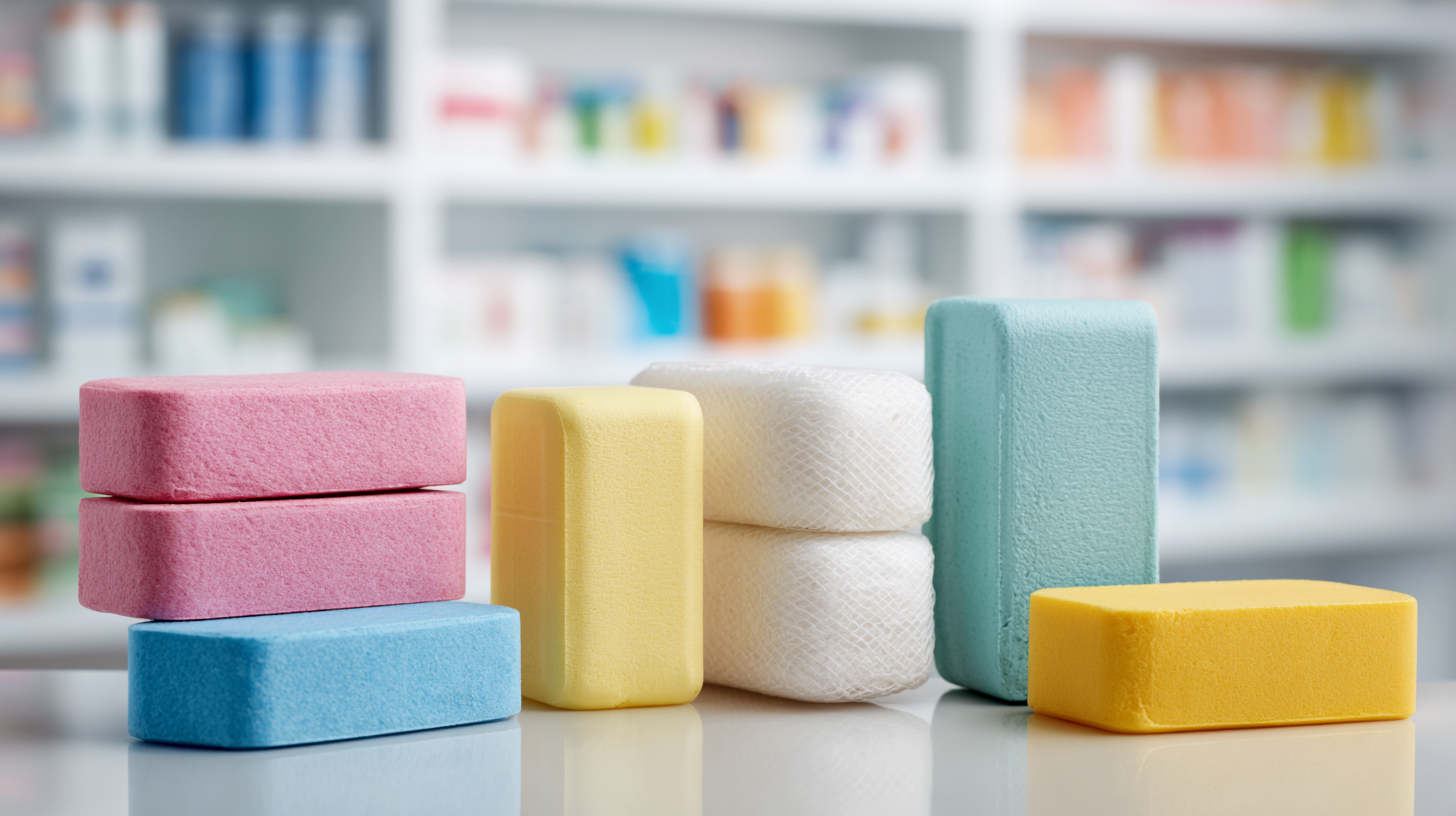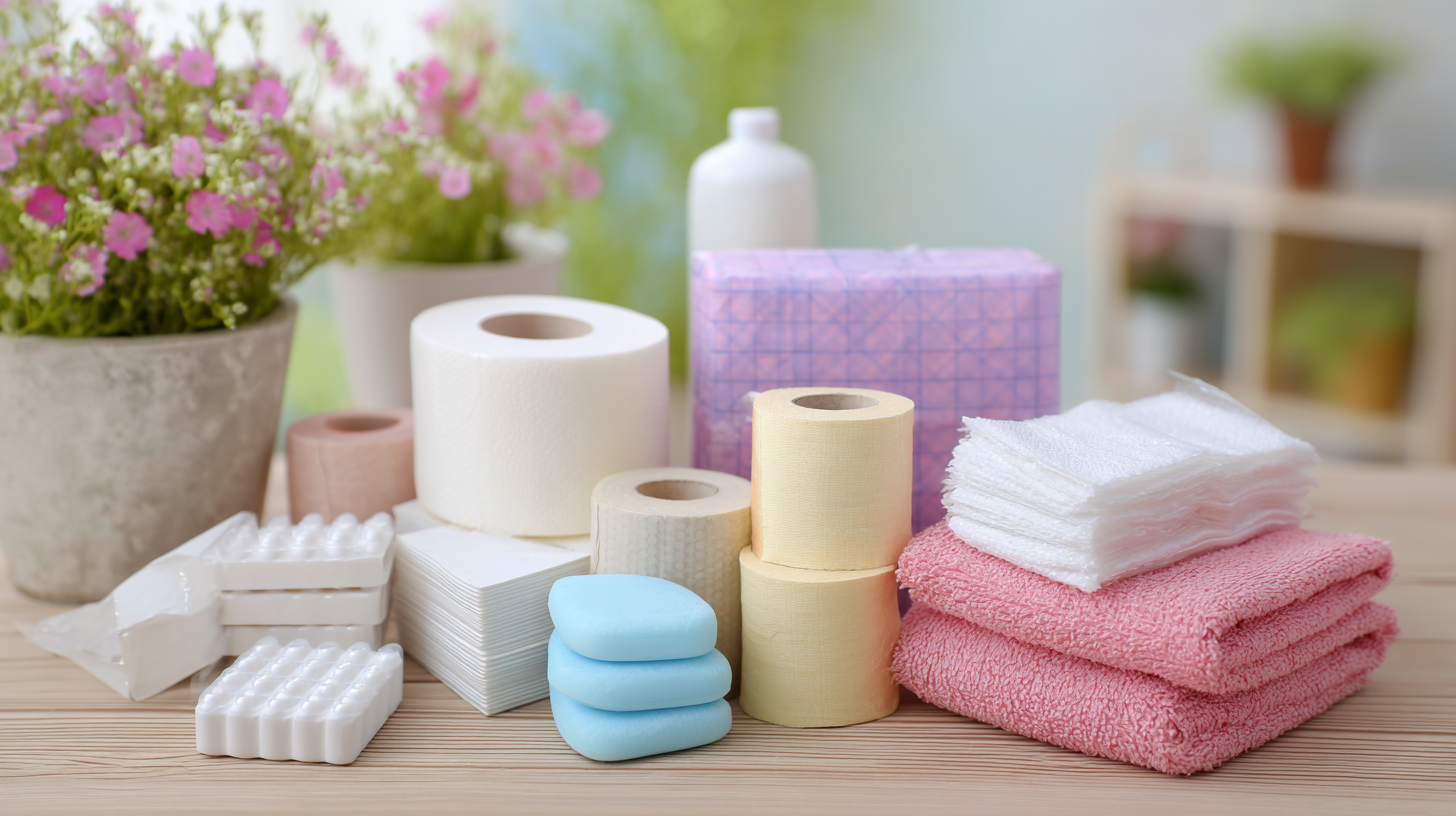Click here to browse our On The Mend Portfolio!
The Ultimate Guide to Choosing the Best Health Care Supplies for Your Home
In an increasingly health-conscious society, the importance of selecting the right Health Care Supplies for home use cannot be overstated. According to a report by Grand View Research, the global health care supplies market is expected to reach $105.2 billion by 2027, driven by the rising prevalence of chronic diseases and an aging population. Furthermore, the World Health Organization has highlighted that effective management of health care supplies is vital for improving patient outcomes and ensuring efficient healthcare delivery at home. As more individuals seek to maintain their health and wellness independently, understanding how to navigate the extensive array of products available becomes crucial. This guide aims to empower consumers with the knowledge and tools necessary to make informed decisions, ensuring that their health care supply selections meet both their immediate needs and long-term health goals.

Understanding the Different Categories of Health Care Supplies for Your Home
When selecting health care supplies for your home, it is essential to understand the different categories available to best meet your needs. Common categories include personal care items, medical devices, and assistive products. For instance, menstrual health and hygiene products play a crucial role in the overall well-being of women and girls, contributing to their potential. According to recent studies, proper menstrual hygiene management can significantly enhance educational and employment opportunities for menstruators, underscoring the importance of including these supplies in your home health kit.
In addition to personal care products, consider the medical devices that may be necessary for chronic conditions or emergencies. Recent data highlights that the U.S. health care spending is projected to grow significantly, surpassing inflation rates, which emphasizes the necessity of planning for health care expenses. Investing in reliable medical devices not only promotes independence but also ensures timely care, especially for families with children with special needs, who benefit immensely from easily accessible medical assistance. By thoughtfully choosing the right supplies, you enhance the quality of life for everyone in your home.

Evaluating Quality Standards in Health Care Supplies: What to Look For
When choosing health care supplies for your home, evaluating quality standards is crucial to ensure safety and efficacy. The World Health Organization emphasizes that up to 15% of medical devices may not meet safety requirements, which highlights the importance of selecting certified products. Look for supplies that are marked with FDA approval or those that comply with ISO 13485, which signifies that the manufacturer maintains a quality management system specifically for medical devices. This certification ensures products are consistently produced to meet both regulatory requirements and consumer expectations.
Additionally, sourcing supplies from reputable companies is essential. A report by the Healthcare Supply Chain Association states that nearly 70% of caregivers have expressed concerns over the quality of supplies available at home. Thus, scrutinizing supplier credentials and customer reviews can provide insight into the reliability of these products. Pay attention to materials used, as well as the manufacturing processes. Superior-quality health care supplies often utilize biocompatible materials, reducing the risk of allergic reactions or complications. By carefully evaluating these standards, you can ensure that your home health care supplies effectively meet your needs while prioritizing safety.
Essential Factors to Consider When Selecting Health Care Supplies
When selecting health care supplies for your home, it's crucial to consider several essential factors to ensure that you meet your specific health needs effectively. First and foremost, evaluate the types of medical conditions that require management in your household. This assessment helps narrow down the list of necessary supplies, whether it's essential medicines from a reliable source or specialized equipment for chronic conditions. Understanding your needs can guide you in choosing the right items that provide optimal care without being overwhelmed by options.
Cost and accessibility are also significant considerations when determining the best health care supplies. Check if the products are covered by insurance, as this can greatly influence your options and budgeting. Moreover, consult with healthcare professionals to understand the most effective and safe products for your situation. With the shift towards home-based healthcare alternatives, it's vital to prioritize quality and safety in your selections, especially when it comes to protective clothing and medical devices. Balance cost-effectiveness with reliability to ensure that your health care supply choices facilitate better health outcomes at home.
The Ultimate Guide to Choosing the Best Health Care Supplies for Your Home
Understanding the importance of various health care supplies can help you make informed decisions. The following chart illustrates common categories of health care supplies and their respective usage rates in a typical household.
Analyzing Cost vs. Benefit: Making Informed Purchases for Home Care
When choosing health care supplies for your home, understanding the balance between cost and benefit is crucial. With the home health care market projected to grow significantly—expected to reach a size of $196.5 billion in infusion therapy by 2024 and rise to $380.2 billion by 2032—it's essential to make informed decisions regarding your purchases. Investing in quality home health supplies can yield long-term savings and improved health outcomes.
**Tips:** Always assess the necessity and frequency of use for each product. Products like wound care supplies are expected to expand from $11.17 billion in 2022 to $15.51 billion by 2030, indicating a rising demand. Prioritize essential items that cater to chronic conditions you or your family members may face. Additionally, take advantage of the growing telehealth market, projected to enhance accessibility and potentially reduce costs in managing ongoing health concerns.
While considering budget constraints, remember that higher-quality items may come at a premium but can ultimately result in better efficacy and longevity. The market for respiratory therapies is anticipated to grow to $654.32 million by 2033, highlighting the importance of acquiring reliable and effective devices to maintain health at home.
The Ultimate Guide to Choosing the Best Health Care Supplies for Your Home
| Product Type | Average Cost (USD) | Potential Benefits | Recommended For |
|---|---|---|---|
| Blood Pressure Monitor | $50 | Monitoring cardiovascular health | Elderly, Patients with Hypertension |
| Glucose Meter | $30 | Tracking blood sugar levels | Diabetes Patients |
| First Aid Kit | $25 | Emergency medical care | Families, Caregivers |
| Walkers | $80 | Improving mobility and stability | Elderly, Post-surgery patients |
| Oxygen Concentrator | $1500 | Providing oxygen therapy | Patients with Respiratory Issues |
The Impact of Local Regulations and Safety Standards on Health Care Supplies Choice
When selecting health care supplies for your home, understanding local regulations and safety standards is crucial. These regulations can significantly influence your choices, ensuring that the products you purchase meet essential safety and efficacy criteria. For instance, in areas where recent legislative changes have occurred, such as in Florida, new laws may introduce stricter requirements for health-related products, making it imperative for consumers to stay informed about their state's regulations. A lack of adherence to these laws can lead to the availability of unsafe or ineffective products in the market.
Furthermore, as the health care landscape evolves with advancements in treatments, such as weight-loss injections, the implications of local laws cannot be overstated. When considering options like injections for obesity, it’s vital to be aware of telehealth regulations and the licensing of pharmacies involved in these treatments. Engaging with unregulated providers may put your health at risk, highlighting the importance of selecting supplies from credible sources that comply with local safety standards. Being vigilant not only ensures personal safety but also contributes to a more reliable health care system at large.

Related Posts
-

Navigating the Essentials: Your Guide to Selecting Home Medical Equipment
-

Comprehensive Guide to Best Medical Supply Equipment: Essential Specifications and User Tutorials
-

Challenges Faced by Healthcare Providers in Sourcing Medical Accessories
-

Global Market Insights for Home Health Care Supplies and Effective Strategies to Succeed in 2025
-

Exploring the 2025 Tech Innovations in Best Home Health Supplies and How to Leverage Them for Global Sourcing
-

Ultimate Home Care Supplies Checklist to Simplify Your Daily Routine
View Products
- Bathroom Safety & Shower Systems
- Canes, Knee Walkers, Rollators & Wheelchairs
- Compression Socks, Stockings & Custom Garments
- CPAP Machines, Devices, Accessories & Supplies
- Incontinence Supplies
- Lift, Reclining, and Sleeper Chairs
- Power Scooters, Power Chairs & Accessories
- Ramps & Handicap Access
- Stair, Platform & Portable Lifts
- Blog
Our Locations
Visit Us in CT, NY & CA
Looking for a 'medical store near me'? Call On The Mend for the equipment and service you need!
